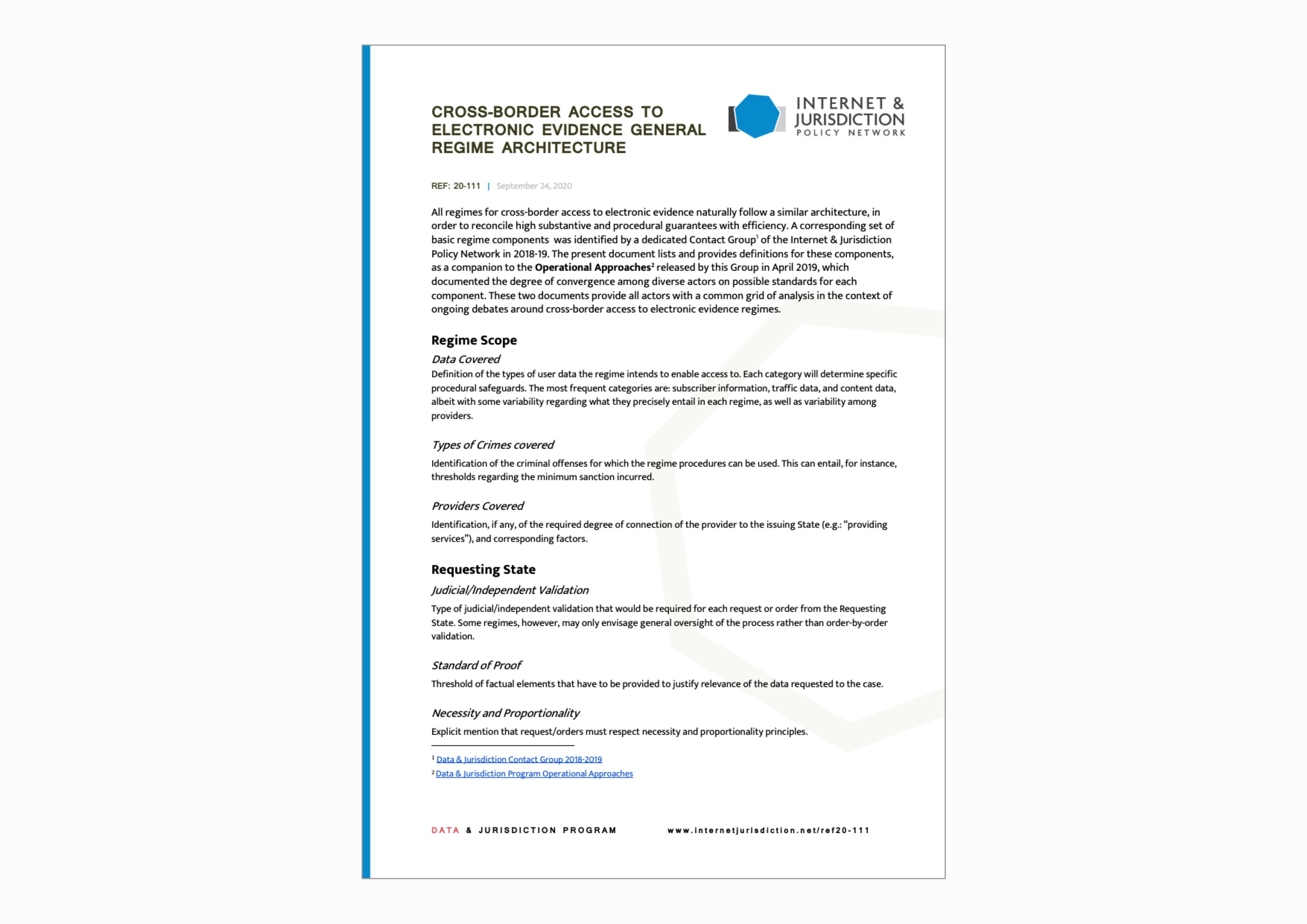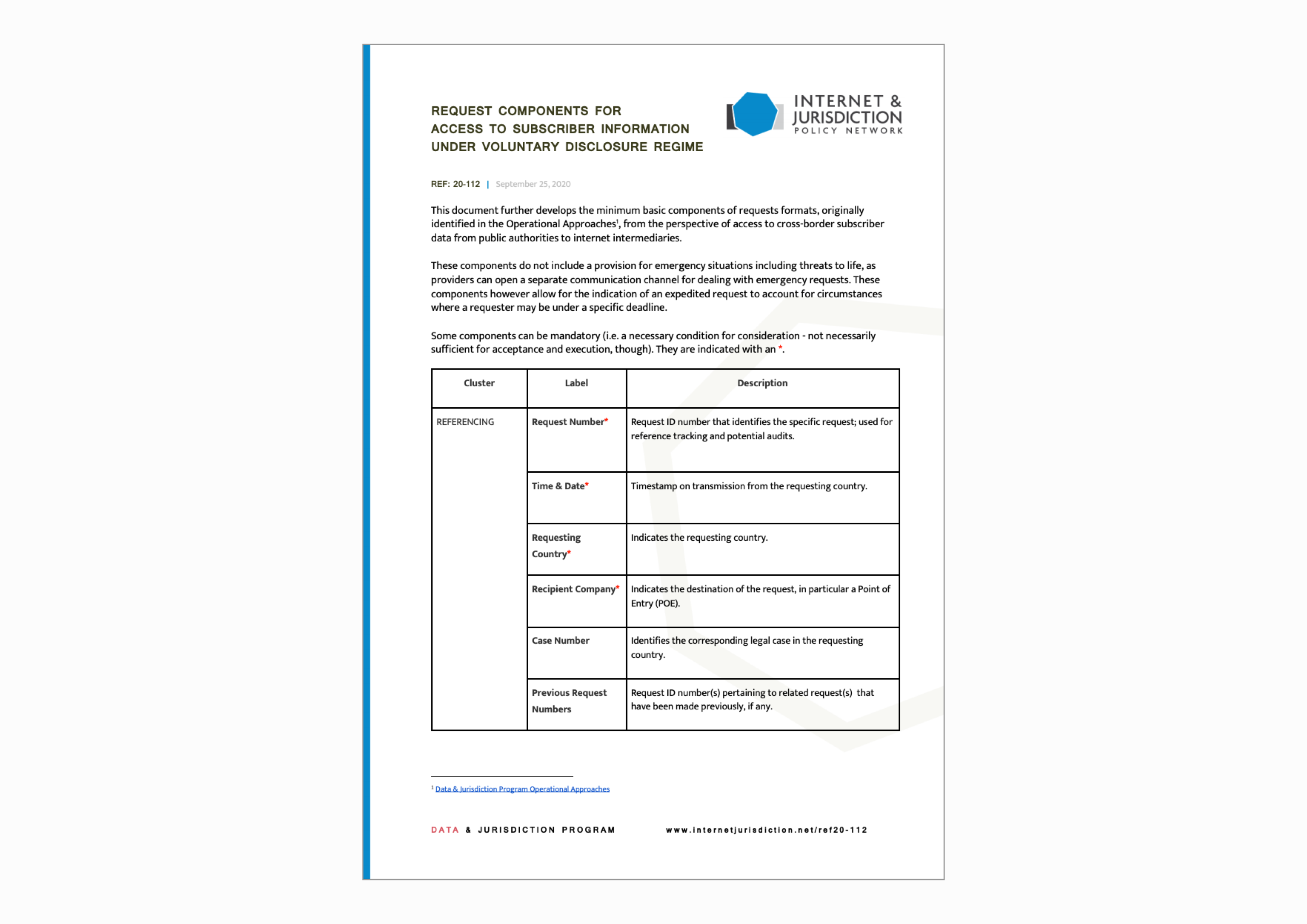The Internet & Jurisdiction Policy Network Data & Jurisdiction Program Contact Group has released two new resources.
Download the new I&J Outcome: Cross-border Access to Electronic Evidence: General Regime Architecture (REF: 20-111)
Download the new I&J Outcome: Request Components for Access to Subscriber Information under Voluntary Disclosure Regime (REF: 20-112)
To equip businesses and law enforcement with the tools they need to navigate the architecture of current legal regimes for the processing of cross-border electronic evidence requests, over 30 senior-level global key actors from governments, internet companies, technical operators, civil society, leading universities, and international organizations, have worked together in the Internet & Jurisdiction Policy Network Data & Jurisdiction Program Contact Group, to prepare two resources:
Cross-border Access to Electronic Evidence: General Regime Architecture (REF: 20-111)
Request Components for Access to Subscriber Information (REF: 20-112)
Criminal investigations increasingly require access to user information stored by service providers outside of the investigating country. Yet, existing traditional systems for cross-border access to such data are slow and are under stress or provide limited procedural guarantees. The resources are intended to provide a tool for stakeholders to analyze current and pending cross-border access to electronic evidence regimes (I&J Outcome REF: 20-111), as well as a checklist for processing requests for access to subscriber information and support (I&J Outcome REF: 20-112).
Meet the Members of the Data & Jurisdiction Program Contact Group.
Download the new I&J Outcome: Cross-border Access to Electronic Evidence: General Regime Architecture (REF: 20-111)
The document identifies a corresponding set of core components that form a common grid of analysis for policy actors from government, business, civil society, and academia in the context of ongoing debates around cross-border access to electronic evidence regimes.
Download the new I&J Outcome: Request Components for Access to Subscriber Information (REF: 20-112)
The document lists the components of a request that actors may require when making or processing a request for access to subscriber information under existing voluntary disclosure regimes. This information can improve the quality of requests sent to intermediaries and reduce subsequent processing time.
The components consciously do not include a provision for emergency situations including threats to life, as providers often have a separate communication channel for dealing with emergency requests. These components, however, allow for the indication of an expedited request to account for circumstances where a requester may be under a specific deadline.
Both of these resources build on the outcome of the work of Members of the Internet & Jurisdiction Policy Network’s Data & Jurisdiction Program Contact Group. In 2019, the Members developed a set of Operational Approaches that provide stakeholders with common Norms, Criteria, and Mechanisms regarding cross-border access to electronic evidence, which was discussed at the 3rd Global Conference of the Internet & Jurisdiction Policy Network, which resulted in the Berlin Roadmap.
The Internet & Jurisdiction Policy Network is the multistakeholder organization addressing the tension between the cross-border internet and national jurisdictions. It engages over 300 entities from governments, the world’s largest internet companies, technical operators, civil society groups, academia, and international organizations from over 50 countries.




